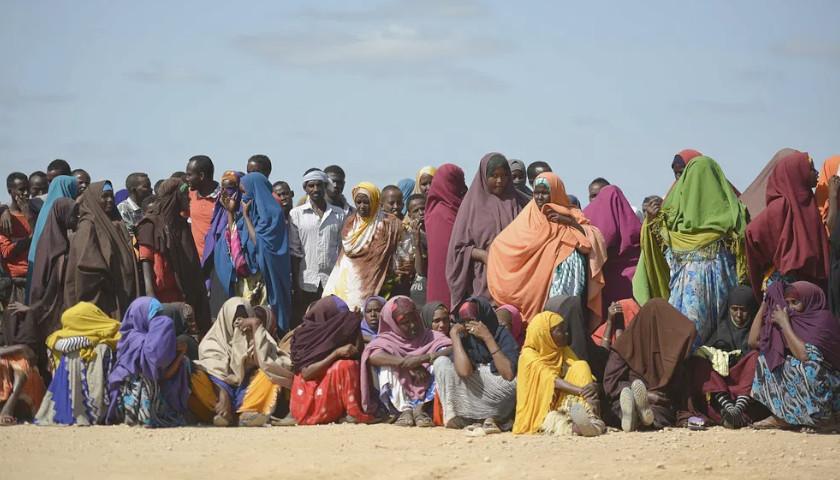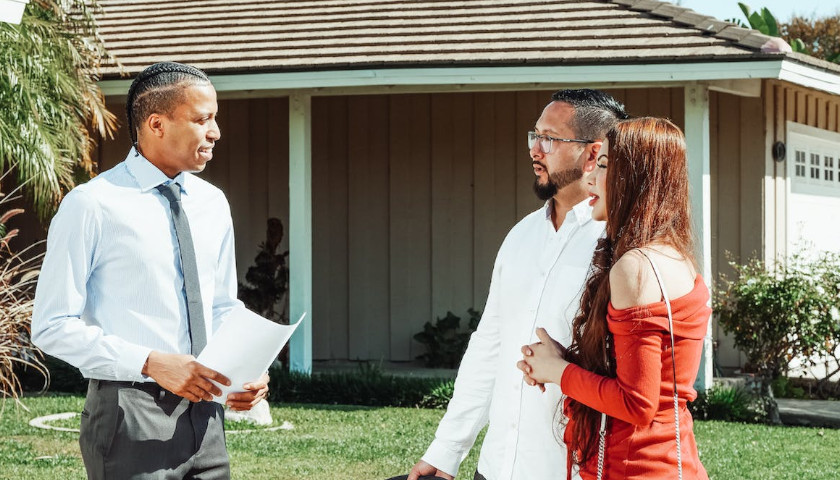An official with a refugee resettlement organization told The Wisconsin Daily Star that 75 refugees are coming to Wisconsin’s Chippewa Valley beginning in early January, and there’s nothing opponents of the resettlement plan can do about it.
Tami McLaughlin, office director of World Relief Wisconsin-Fox Valley, said the Biden administration has signed off on the plan, and the federal government is the final authority.
“We don’t expect universal approval. We don’t know going into a community who would or would not support or agree with this,” McLaughlin said in an interview Thursday with The Daily Star. “We know not everybody will, but we take our direction from the federal government and what is expected is to open a resettlement office in the Chippewa Valley.”
The U.S. State Department’s Bureau of Population, Refugees, and Migration is the lead federal agent.
A lot of area residents don’t support the resettlement. Scores of opponents turned out to protest the plan at recent public hearings. They’re concerned about the vetting of the refugees from war-torn countries and the impact the relocation will have on local resources and taxpayers. But they’re particularly upset that the resettlement deal was brokered in the dark months ago with Eau Claire City Manager Stephanie Hirsch, an unelected bureaucrat, without the consent — or knowledge — of local elected officials.
Several sources have said the refugees will come from terrorist-infested Somalia, but McLaughlin insists only a small number of refugees are expected to come from the war-torn African nation. She said there is a small community of Somalis north of Eau Claire in the small community of Baron, and the resettlement could include some of their family members.
She expects most of the refugees will come from the Democratic Republic of Congo (DRC) in Africa and Myanmar in Southeast Asia, both countries mired in ongoing wars.
The non-governmental organization (NGO) won’t know for sure who is coming until the Biden administration tells them. McLaughlin said she is basing her expectations on trends. Last year, Wisconsin took in approximately 1,600 refugees, unbeknownst to most Wisconsinites. Most of them arrived from DRC and Myanmar, McLaughlin said, resettling in the Fox Valley, Milwaukee, Madison, and Wausau. In Fiscal Year 2021, 388 refugees relocated to Wisconsin, the vast majority from the DRC.
“That’s a small number of people compared to many other states,” she said.
McLaughlin said there’s been a lot of misinformation about the process. She said her organization has been in contact with the individuals they are required to consult with.
Federal law requires groups like World Relief Wisconsin to “consult regularly . . . with state and local governments” before placing refugees in localities. However, it appears her organization consulted only with bureaucrats in Eau Claire and the Chippewa Valley, in the public health system, the school district, economic development, supportive volunteer groups, employers, and landlords.
Most elected officials were not privy to the conversations, which began in March.
Hirsch, the Eau Claire city manager, and liberal City Council President Emily Berge have not returned requests for comment.
State Representative Karen Hurd (R-Fall Creek), whose 68th Assembly District includes most of Eau Claire County, said she wasn’t notified of the plan, nor were Eau Claire County supervisors and the sheriff.
“We found out about it recently by a local station that just put out there they were going to bring 75 refugees into Eau Claire. Everybody was like, ‘What?’” the lawmaker told The Daily Star on Wednesday.
McLaughlin said there have been community events to inform the public, but those have occurred in recent weeks — a couple of months before the first refugees arrive in January.
Hurd said it seems clear Eau Claire and the Chippewa Valley are stuck. The language in the federal law doesn’t appear to require elected officials to sign off on a refugee resettlement plan.
She said that needs to change.
The lawmaker has asked U.S. Representatives Derrick Van Orden (R-WI-03) and Tom Tiffany (R-WI-07) to push for a statutory change in the code demanding NGOs and the federal government coordinate with and receive approval from local elected officials — not bureaucrats.
“It’s clear they can do it. Tami McLaughlin is right. She can say, ‘Na-na na-na boo boo! It’s your tough luck.’ This is why legislators have to change it,” Hurd said.
“We have to keep fighting,” she added. “It’s going to happen again and again if we don’t.”
– – –
M.D. Kittle is the National Political Editor for The Star News Network.






I live in Eau Claire. I find it remarkable that your article outlines all the facts perfectly and no such outline has been forthcoming in any local Eau Claire media.